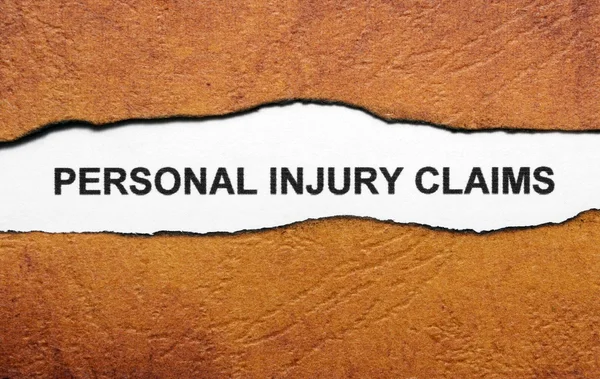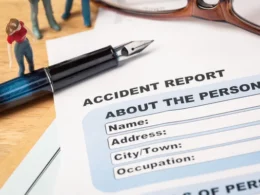When you suffer an injury, it can be a traumatic and life-altering experience. Depending on the severity of your injury, you may be facing a long road to recovery, and you may be unable to work or even perform basic tasks. In these situations, many people turn to personal injury claims as a way to seek compensation for their damages.
But how successful are personal injury claims, really? This is a question that many people ask when considering whether to pursue legal action.
The truth is that the success of a personal injury claim depends on a variety of factors, including the severity of your injuries, the strength of your evidence, and the experience of your legal team.
While some personal injury cases result in large settlements or jury awards, others may be less successful or may be settled for smaller amounts.
In this detailed, we will explore the chances and factors that make a personal injury claim successful?
Understanding Personal Injury Claims
If you have been injured due to someone else’s negligence, you may be entitled to compensation through a personal injury claim. Understanding the basics of personal injury claims can help you determine whether pursuing a claim is the right course of action for you.
What is a Personal Injury Claim?
A personal injury claim is a legal case in which a plaintiff seeks compensation for injuries caused by the negligence or intentional actions of a defendant.
Personal injury claims can arise from a variety of situations, including car accidents, slip and falls, medical malpractice, and defective products.
Types of Personal Injury Claims
There are several types of personal injury claims, including:
- Negligence: This is the most common type of personal injury claim. It arises when the defendant fails to exercise reasonable care and causes injury to the plaintiff.
- Product liability: If a defective product causes injury to a consumer, the manufacturer, distributor, and/or retailer of the product may be held liable.
- Premises liability: Property owners have a duty to maintain safe conditions on their property. If a hazardous condition causes injury to a visitor, the property owner may be held liable.
- Intentional torts: These are intentional actions that cause injury, such as assault and battery.
Liability in Personal Injury Claims
In a personal injury claim, the plaintiff must prove that the defendant was liable for their injuries. Liability can be established through several legal theories, including negligence, strict liability, and intentional torts.
If the plaintiff can establish liability, they may be entitled to compensation for their damages, which can include medical expenses, lost wages, and pain and suffering.
It is important to note that personal injury claims can be complex and often require the assistance of an experienced personal injury attorney. If you are considering pursuing a personal injury claim, it is important to consult with an attorney to discuss your legal options.
The Role of Personal Injury Lawyers
If you have suffered an injury due to someone else’s negligence, a personal injury lawyer can help you navigate the legal process and maximize your compensation. Here’s what you need to know about the role of personal injury lawyers.
What Does a Personal Injury Lawyer Do?
A personal injury lawyer is a legal professional who specializes in representing clients who have been injured in accidents. They provide legal guidance and representation to help clients pursue compensation for their injuries. Some of the tasks that a personal injury lawyer may perform include:
- Investigating the accident and gathering evidence
- Evaluating the strength of the case and determining the appropriate legal strategy
- Negotiating with insurance companies and other parties involved in the case
- Representing clients in court, if necessary
- Advising clients on their legal rights and options
When Should You Hire a Personal Injury Lawyer?
If you have been injured in an accident that was caused by someone else’s negligence, you may be wondering whether you need to hire a personal injury lawyer. Here are some situations where it may be beneficial to seek legal representation:
- Your injuries are severe or long-lasting
- The other party is disputing liability for the accident
- The insurance company is offering a low settlement or denying your claim
- You are not sure how to navigate the legal process on your own
How to Choose the Right Personal Injury Lawyer
Choosing the right personal injury lawyer is an important decision that can impact the outcome of your case. Here are some factors to consider when selecting a lawyer:
- Experience: Look for a lawyer who has experience handling cases similar to yours.
- Reputation: Check online reviews and ask for referrals from friends and family.
- Communication: Choose a lawyer who communicates clearly and promptly.
- Fees: Make sure you understand the lawyer’s fee structure and how they will be paid.
By working with a personal injury lawyer, you can ensure that your legal rights are protected and that you receive the compensation you deserve for your injuries.
The Personal Injury Claim Process
If you’ve been injured in an accident, you may be wondering how to go about filing a personal injury claim. The process can be complex, but with the right information and guidance, you can successfully navigate it.
Filing a Personal Injury Claim
The first step in the personal injury claim process is to file a claim with the responsible party’s insurance company. This can be done by sending a demand letter outlining your injuries and damages, along with any supporting documentation such as medical records and bills.
Once the insurance company receives your demand letter, they will begin their investigation process.
The Investigation Process
During the investigation process, the insurance company will review the details of the accident, including any police reports, witness statements, and medical records. They may also contact you for additional information or to schedule an independent medical examination.
It’s important to note that insurance companies are looking out for their own interests, not yours. They may try to minimize your damages or find ways to avoid liability. This is why it’s crucial to have an experienced personal injury attorney on your side.
Negotiating a Settlement
If the insurance company accepts liability, they will typically make an initial settlement offer. This offer may be lower than what you believe your case is worth, but it’s important not to accept it right away.
Instead, you and your attorney can negotiate with the insurance company to reach a fair settlement amount. This may involve multiple rounds of negotiations and may take several weeks or months to resolve.
Going to Trial
If you’re unable to reach a settlement agreement with the insurance company, you may need to take your case to trial. This involves presenting your case to a judge and jury, who will decide whether the responsible party is liable for your damages and how much compensation you should receive.
Going to trial can be expensive and time-consuming, so it’s important to carefully consider your options before deciding to pursue this route.
Overall, the success of your personal injury claim will depend on a variety of factors, including the strength of your case, the skill of your attorney, and the willingness of the insurance company to negotiate a fair settlement. By understanding the personal injury claim process and working with an experienced attorney, you can increase your chances of a successful outcome.
Factors That Affect the Success of Personal Injury Claims
When it comes to personal injury claims, there are several factors that can affect their success. Here are some of the most important ones:
Evidence
One of the most important factors that affect the success of your personal injury claim is the evidence you provide. The more evidence you have to support your claim, the stronger your case will be. This includes things like witness statements, medical records, photographs, and any other relevant documentation.
Severity of Injuries
Another important factor is the severity of your injuries. Generally, more severe injuries tend to result in larger settlements because of the pain and suffering involved. This is especially true for injuries that result in long-term or permanent disability.
Medical Bills and Lost Wages
The amount of your medical bills and lost wages can also have a significant impact on the success of your personal injury claim. The more you have to pay for medical treatment and the more income you lose due to your injuries, the higher your compensation should be.
Pain and Suffering
Finally, pain and suffering is another important factor that can affect the success of your personal injury claim. This includes things like physical pain, emotional distress, and loss of enjoyment of life. The more severe your pain and suffering, the higher your compensation should be.
It is important to note that the success of your personal injury claim will depend on a variety of factors, including the type of case you have (such as medical malpractice or strict liability), the laws in your state, and the skill of your attorney. However, by focusing on the factors outlined above, you can help ensure the best possible outcome for your case.
Conclusion
A successful personal injury claim depends on various factors, including the strength of the evidence, the extent of damages, and the expertise of the legal team. Proving liability and damages is crucial in securing a favorable verdict or settlement.
While settling a case may seem like an easy way out, it is important to consider the long-term implications and consult with a knowledgeable attorney. By evaluating the merits of your case and working with an experienced legal team, you can maximize your chances of success in a personal injury claim.
YOU SHOULD ALSO READ:
- Road Traffic Personal Injury Claims: A Comprehensive Guide
- Can You Get Legal Aid for Personal Injury Claims? Explained
- Personal Injury Claim Medical Examination: What to Expect and How to Prepare
- Personal Injury Claim: What You Need to Know About Broken Ankle Cases
- Personal Injury vs. Medical Negligence: Understanding the Key Differences












